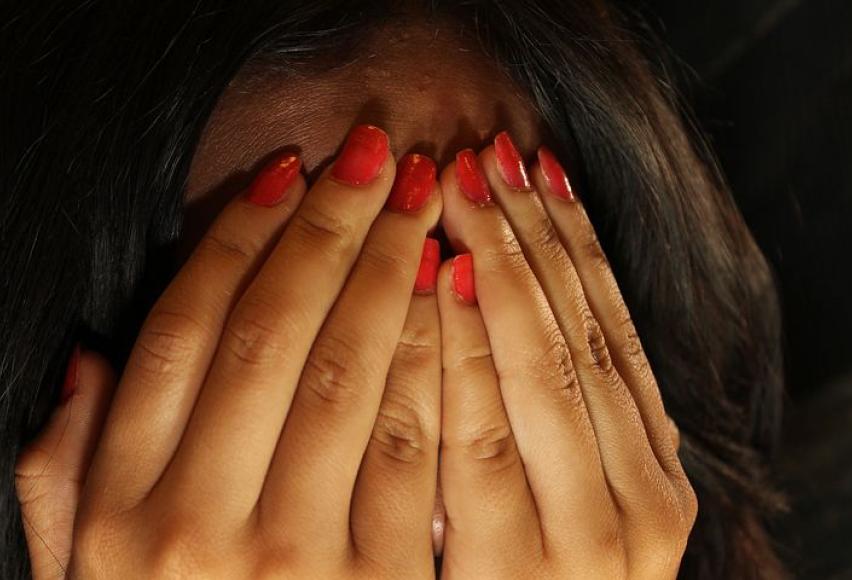Trichotillomania Still an Overlooked Disorder

Online test
Find out the severity of your symptoms with this free online test
 Trichotillomania, difficult word to pronounce and even more difficult disorder to live with. A lot of people don’t have a clue on what hair pulling disorder is. It wasn't even officially labelled a disorder until 1987 but studies show that it has existed since evaluation of humankind, unfortunately scientists still aren't sure what causes trichotillomania. But even though there aren’t clear effective ways on how to cure it, there are many who have found ways to manage the behavior and break the cycle.
Trichotillomania, difficult word to pronounce and even more difficult disorder to live with. A lot of people don’t have a clue on what hair pulling disorder is. It wasn't even officially labelled a disorder until 1987 but studies show that it has existed since evaluation of humankind, unfortunately scientists still aren't sure what causes trichotillomania. But even though there aren’t clear effective ways on how to cure it, there are many who have found ways to manage the behavior and break the cycle.
Break the Stigma
Educate yourself, then educate others, and finally, don't act weird when and if someone "comes out" to you about having the disorder. The more we talk about it the less strange it will seem, and the less isolated sufferers will feel. A lot of disorders are still overlooked and it is up to individuals who understand the disorder to take a stand and let their voice be heard.
Fortunately for us we live in a digital world were communities are interconnected. This means that a message that you broadcast from the US on social media can potentially reach more than 1 billion social media users. Yes you can educate approximately 1 billion people worldwide. Change does indeed begin with you.
Mental health has always been the bearer of negative stigma and shame. Psychological disorders are illnesses just like diabetes or arthritis, yet it is not perceived with the same empathy. Instead many people who experience mental illness hide their condition for fear of judgement or rejection. However, through advocacy and education mental health has become more acceptable a topic to talk about in open conversation, with more and more people being open about their struggles with conditions such as Depression and Generalized Anxiety Disorder. With the steady attack on the stigma against these 'mainstream' psychological disorders, comes increased research and therefore advances in treatment. Unfortunately not all psychology is treated equal. The lesser known conditions such as Trichotillomania still bears a lot of negative stigma and therefore an intense burden of shame around the behavior.
Raise Awareness
Here are some ways that you can use to raise awareness about trich:
Host Educational Events
Invite people to attend an event where they can learn something really useful for their own lives, while also learning about your issues. This doesn’t have to be formal and big, inviting family members and friends is a perfectly good start.
Host Social Events
Make the reason to get together fun and social, and then tack on some information about your cause. As mentioned above these meetings don’t have to be formal, the aim is to get the message through to the people.
Organize a Service Project
Allow groups (e.g., service clubs, employees at a company, etc.) to volunteer together in some way related to your work, perhaps on a special volunteer day.
Be the Trusted Expert
If you are a health professional working in this field, participate in research, publish research, case studies, or trends data that positions you as a trusted expert on these issues.
Empower and Connect Others
Bring together people who have a common interest and facilitate their sharing and networking, so they know they are not alone.
 Take to Social Media
Take to Social Media
Social media is a powerful tool that can have both positive and negative consequences. It can be difficult to filter out the negative, but one way to do so is to be the source of positive messaging and inspiration yourself. To a large extent the awareness we have of BFRBs like trichotillomania today it thanks to the thousands of bloggers and vloggers out there who have had the courage to share their experiences with the disorder openly with the world.
Join the Global Community
The expression "strength in numbers" holds a lot of truth. Every year from 1-7 October those involved in the advocacy and awareness of BFRBs such as hair pulling and skin picking disorder, observe BFRB awareness week across the globe. Sharing your own experiences publicly is not for everyone, and that is okay. That doesn't mean that you can't have a significant impact in other ways. You could share links from these advocacy organisations to spread their message, volunteer at workshops and conferences, participate in social media campaigns, or even just donate to these self funded non-profit organisations such as the BFRB Foundation, who are working hard to advance the knowledge and research around this disorder.
Online test
Find out the severity of your symptoms with this free online test
Start your journey with TrichStop
Take control of your life and find freedom from hair pulling through professional therapy and evidence-based behavioral techniques.
Start Now



